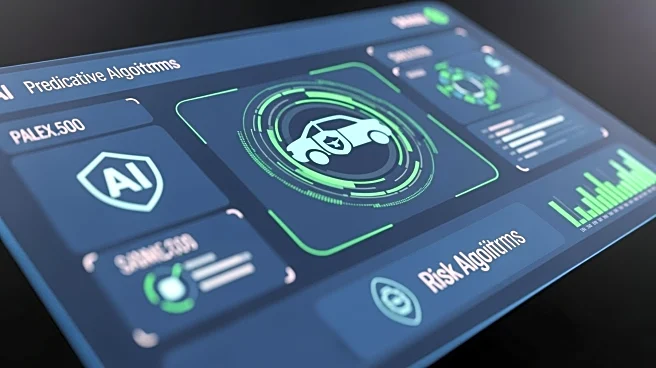What's Happening?
Researchers at Johns Hopkins University have developed an AI tool called SafeTraffic Copilot, designed to predict car accidents by analyzing various factors such as weather, traffic patterns, and driver behavior. The tool uses generative AI and large
language models to process data from over 66,000 accidents, including road conditions and blood alcohol levels. This AI model aims to provide infrastructure designers and policymakers with insights to mitigate crashes. The tool can evaluate risk factors and offer confidence scores for its predictions, addressing the uncertainty often associated with AI decision-making.
Why It's Important?
The development of SafeTraffic Copilot represents a significant advancement in traffic safety technology. By providing data-driven insights, the tool has the potential to reduce the number of crashes and fatalities, which have been rising steadily. This innovation could lead to improved road safety measures and influence public policy decisions. The ability to predict accidents based on changing traffic conditions could help cities and states optimize infrastructure and enhance public safety. Additionally, the tool's adaptability to different regions and cultures suggests a broader application, potentially benefiting international traffic safety efforts.
What's Next?
The implementation of SafeTraffic Copilot could lead to changes in traffic management and infrastructure design. Policymakers and urban planners may consider integrating AI predictions into their strategies to improve road safety. As the tool gains traction, it may prompt further research and development in AI-driven traffic solutions. Stakeholders, including government agencies and transportation companies, will likely monitor the tool's effectiveness and explore opportunities for collaboration. The success of this AI model could also inspire similar innovations in other areas of public safety and infrastructure management.
Beyond the Headlines
The use of AI in predicting car accidents raises ethical and legal questions about data privacy and accountability. As AI becomes more integrated into public safety measures, ensuring transparency and addressing potential biases in data analysis will be crucial. The development of SafeTraffic Copilot highlights the need for responsible AI use, balancing technological advancements with ethical considerations. Additionally, the tool's focus on driver behavior and cultural differences underscores the importance of understanding human factors in AI applications.















